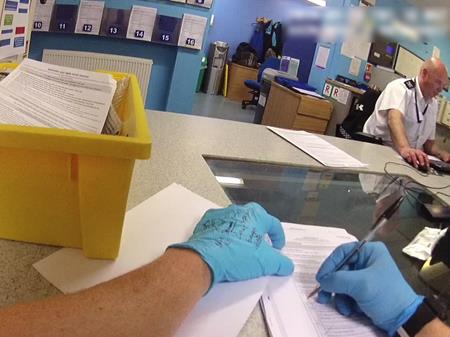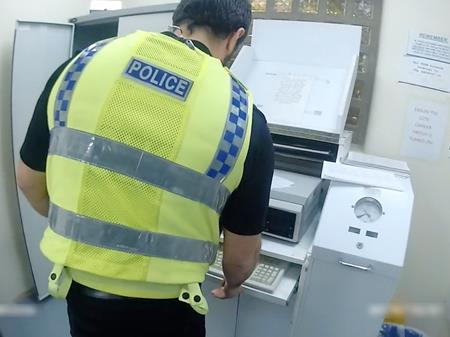Urine Alcohol Tests
Urine results can be false, inaccurate and misleading. It is for this reason that urine is a last resort for the police. This page discusses the law surrounding drink driving urine produces and potential defences.
We can help you with:
- Understanding the urine procedure
- Where the police go wrong
- Defending an allegation
- Next steps
Drink Driving Urine Alcohol Tests
Of all the samples that could be given in a drink driving case, urine is the least common. This is because Police guidance advises that urine should only be taken as a last resort, due to the complicated nature of the procedure, the time it takes to collect an evidential urine specimen and the inaccurate and unreliable results often provided by laboratories.
Testing for Alcohol in Urine
It stands to reason that the more you do something, the better you become at it. Many police officers are far less familiar with urine procedures because they carry out so few of them. This can result in mistakes being made.
M.A.J. Law continues to win a significant number of urine cases related to drink driving. This wouldn’t be possible without our team of specialist motoring defence solicitors, our expert witnesses and our forensic scientists.
The urine procedure - What you need to know
There is no immediate option to provide a urine specimen at the police station. An officer can only request a sample of urine if;
- There is no evidential breath testing device available at the police station
- You cannot provide a specimen of breath due to a medical reason
- The evidential breath testing device has produced an unreliable or inconclusive reading
- You were taken to the hospital rather than the police station
If urine is taken in any other circumstance, it is probably unlawful. If you think this may have happened to you, please call us immediately.
The Law & Procedure
The law states that you have one hour to provide two specimens of urine. The first sample involves you urinating into a container. This sample is then handed to the officer and discarded by the officer. It is crucial that the officer discards this sample. It cannot be discarded by you and cannot be directly into the toilet.
You should then be given a period of time – often around 40 – 60 minutes – to refill your bladder. This means the officer should be providing you with water.
The second sample involves you urinating into a container. This sample is then handed to the officer and split into two. Part of the second sample is given to you, the other part is the kept by the officer (this is the part that will be sent to the laboratory).
The majority of urine cases we win will fail because of one of the following reasons. If you think any of the points set out below may have happened in your case, it is crucial that you contact us immediately. The starting point when challenging a drink driving urine case is to consider the following:
Do you have a statutory or common law defence?
Don’t worry if you’re not sure. MAJ Law Ltd can talk you through your options and identify any available defence immediately.
- Were all the correct procedures completed before a sample of urine was taken, including two 25 page legal documents?
If there is fault with the evidence, our team will find it. This could secure your acquittal. - Did the officer have the power under statute to require you to provide a specimen of urine?
An officer cannot simply request a urine sample; he must have the legal authority to do so. If he was acting outside of his power – the case would collapse. - Were you provided with part of your own specimen?
A failure to provide you with part of your sample would render the CPSs sample inadmissible, leading to a complete acquittal. - Was a preservative tablet added to your sample before it was sent to the laboratory and was your sample shaken for the required period?
This procedure ensures the stability and accuracy of your urine sample. If the correct chemicals were not added, the sample may change in alcohol concentration. - Did the sample vial contain all the relevant information and was it sealed in a tamper-evidence bag?
Without this information the CPS would struggle to establish continuity. The court must be certain that the sample received by the laboratory belonged to you. - Can the CPS prove that the sample was stored in stable conditions prior to being sent to the laboratory?
Storage conditions are one of the most important factors that should be considered in a drink driving urine case. From police vehicle footwells to police officer’s pockets – we’ve seen it all. - Was the sample analysed with an approved and recognised method and was this correctly documented?
At MAJ Law we know the ‘ins and outs’ of forensic analysis. If you’d like to put our knowledge to the test – don’t be afraid to call us. - Can the CPS prove each and every element of the offence beyond all reasonable doubt?
Due to funding shortages and administration problems, the CPS rely on people pleading guilty at the first court hearing. By pleading not-guilty you force the CPS to provide the evidence within 28 days.
The MGDDB Document
There are over 5 different routes an officer can take to obtain a specimen of urine. He must have the lawful authority to take the chosen route and this must be documented correctly in the MGDDB document. It’s a procedural minefield.
M.A.J. Law recognises that every case is different. We often win drink driving urine cases using complex legal arguments and unique defence strategies. Most of our cases are won for the following reasons;
- You should be informed that the test is completely optional. You do not have to give a sample if you do not want to.
- Officers regularly ask suspects to urinate into the toilet. This is not correct. You must urinate into police-issued sample containers.
- Your bladder must be emptied during the first sample. If your bladder is not emptied, the second sample could contain a higher alcohol concentration.
- A police officer should not ask you to provide a second sample immediately after the first. You should be given one hour to provide a second sample.
- You should be given part of your own urine sample for independent analysis.
Drink Driving Urine
Sentencing Guidelines
| urine alcohol level | Starting point | Disqualification | Disqualification (2nd offence) |
|---|---|---|---|
| 108 - 183 | Band C fine | 12 – 16 months | 36 - 40 months |
| 184 - 274 | Band C fine | 17 – 22 months | 36 - 46 months |
| 275 - 366 | Community Service | 23 – 28 months | 36 - 52 months |
| 367 - 459> | 12 weeks custody | 29 – 36 months | 36 – 60 months |
Any person convicted of drink driving will receive a fine, community service or prison sentence. The type of penalty depends upon the circumstances of the office and, of course, the urine alcohol level. You would also receive a mandatory driving disqualification. The chart above is used by the magistrates when sentencing for drink driving urine offences. You can also use our drink driving ban calculator to work out the likely penalty.
If you avoid a conviction, you will not be disqualified. Continue reading to find out more.
Drink Driving Urine Defence
Further to the issues raised above, there are a number of statutory defences to an allegation of drink driving. Many of these defences will apply to all drink driving related offences. We’ve produced a free ‘Drink Driving Defences’ booklet that details more information about the statutory defences that can be used – you can find it on the Resources page.
To summarise, below are the most common drink driving defences;
- The evidential urine testing procedure was not conducted correctly
- The urine result is not consistent with the alcohol that I consumed (i.e. it's an over-estimation)
- I was not driving the vehicle (or the police did not see me driving the vehicle)
- I consumed alcohol after driving but before the police arrived (post driving consumption)
Drink Driving Solicitor Cost
MAJ Law are completely transparent about our fixed fee pricing structure and any potential costs that might apply throughout the case, so please don’t be afraid to ask. Our quoted fixed fees will not change, even if the case becomes more complicated than originally anticipated. Over the years, our team of specialist solicitors have built long-lasting, honest and trustworthy relationships with each and every person. This has helped us become the UK's leading drink driving defence solicitors.
MAJ Law also employs a Cost Recovery Administrator who will process your Defence Costs Order immediately (following the successful defence of your case). This allows you to claim back your costs from the Central Funds Office of the Government (subject to assessment).
What do do next
Choosing the right solicitor is vitally important. There is a genuine and honest belief amongst our team that we are the best motoring defence solicitors in the UK (and we’re sure our clients would agree!). We challenge all cases with a positive attitude and will never ‘throw in the towel’. It’s this mindset that has enabled us to claim some of the highest success rates in the country.
We aim to make the decision as easy as possible for you. The following points may assist;
- Make sure you speak to the solicitor who will be handling your case.
- Check there is no charge for initial advice.
- Can you call your solicitor outside office hours? Nasty letters from the police or the court have a habit of arriving on a Saturday morning. It’s a long time to spend worrying if you have to wait until Monday morning to speak to your solicitor.
- Is your solicitor a specialist in motoring law and, in particular, drink driving law?
- Does your solicitor have a proven track record? Ask to see testimonials from other clients.
- Does your solicitor have established contacts with expert witnesses and specialist senior barristers?







